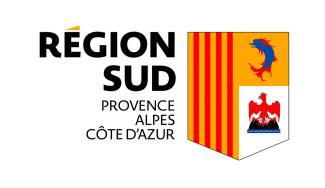Midwifery studies take place at the university within the framework of the LMD Maïeutique course.
The profession of midwife
Midwives practice a medical profession, which combines several specialties: obstetrics, gynecology, neonatalogy, public health, for :
- diagnosis, pregnancy monitoring, birth preparation and parenting preparation
- the practice of normal "eutocic" childbirth and post-natal care for mother and child
- health promotion (support for breastfeeding, gynaecological preventive monitoring, contraception consultations, abortion).
Professional perspectives
Midwifery is practised in hospitals, private practice, doctors' offices, patients' homes, planning, family education and maternal and child protection centres.
The French state diploma in midwifery confers a high level of qualification to practice the profession in the European Union, but also in Quebec and other countries of the world.
Le diplôme d’État français de sage-femme confère un haut niveau de qualification permettant d’exercer la profession dans l’Union européenne, mais également au Québec et d’autres pays du monde.
How to access?
Students may be admitted after a first year of access to health studies.
See the conditions of admission to the course and the administrative registration procedure.
Training organization
The training for the state diploma of midwife takes 4 years (8 semesters and 240 ECTS), after a first year of access to health studies:
- years 1 and 2: general training diploma in maieutic sciences (DFGSMa), Bachelor's degree (Bac +3)
- years 3 and 4: Diploma of Advanced Training in Maieutic Sciences (DFASMa), Master's degree (Bac +5)
Teaching and internships
During the course of the training, students can set up a personalised course in line with their professional project:
- in-depth study in a theoretical or clinical training field
- research career
Cycle 1
Theoretical courses amount to 720.5 hours (640 hours of lectures, 80.5 hours of tutorials), based on obstetrical, gynaecological and paediatric physiology. Clinical teaching (40 weeks) in the form of internships in the pre-natal, per-natal, post-natal and gynaecological sectors.
Cycle 2
Theoretical courses represent 553 hours (479.5 hours of lectures, 73.5 hours of tutorials). Clinical teaching (28 weeks) in the form of internships in the pre-natal, per-natal, post-natal and gynaecological sectors.
This is an in-depth training in maieutic sciences, also ensuring the necessary professionalization for the practice of the profession (diagnosis, obstetrical, gynaecological and paediatric pathology, contraception, ultrasound, medical aid for procreation, etc.).
Equipement innovant
Des simulateurs interactifs haute-fidélité (nourrisson et mère électroniques) sont destinés aux formations en réanimation néonatale, aux soins d’urgence pour les nouveau-nés, et à l'hémorragie de la délivrance.
Les portes de l'Ecole de maïeutique vous sont ouvertes, prenez rendez-vous pour organiser une visite.
Tuition costs
In case of admission to the course, the fees per year of study are:
- student and campus life contribution (CVEC): 91€
- university registration fee for a licence: 170€
- university tuition fees for master's degrees: 243€
Scholarships and financial aid
In case of admission to the course, students can apply for a scholarship from the South PACA Region "in the health and social work fields". Eligibility conditions must be met before the start of the course. If you are not eligible, other funders can intervene - see the guide to health and social work training.
Note: Maieutics students do not have access to CROUS grants.
Students in the Master's cycle in internship receive per diems and mileage allowances to cover their clinical training costs.
Student intranet
For more information access the student intranet.


